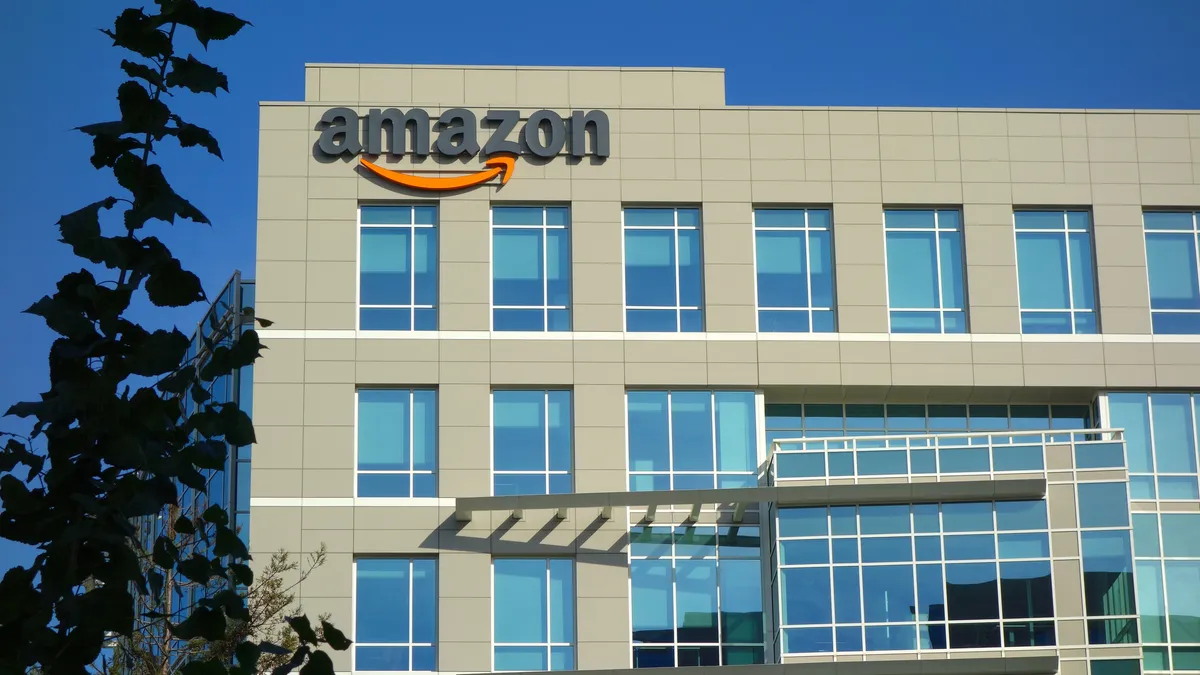Dive Brief:
- Moody's upgraded Amazon's already strong credit rating, from A3 to A2, according to a press release issued Monday by the ratings agency.
- Charlie O'Shea, lead retail analyst for Moody's, cited the strength of Amazon's cloud business, which he noted "drove overall operating income growth in 2019 despite heavy investments in free shipping and marketing."
- O'Shea said Amazon's liquidity and free cash flow are expected to remain strong despite financial pressure from the company's investments. Moody's maintained a positive outlook for the e-commerce giant.
Dive Insight:
If Amazon as a whole was fully dependent on its e-commerce business to generate money, 2019 would have been a tough year, a time of investments that may have made some investors shy away from the company.
Operating income for Amazon's North American business fell by more than 3% in 2019 to $7 billion, according to its 10-K, released last week. The company's international operations narrowed their losses, but still posted negative $1.7 billion in income.
On the other hand, Amazon Web Services generated $9.2 billion in operating profit in 2019, a 26.1% year-over-year increase. Put another way, the cloud business represents just 12% of Amazon's revenue but more than 63% of its operating income.
That helps the company maintain a strong financial position, and investors are less likely to freak out — even when Amazon adds more than $10 billion to its annual shipping costs and signals that it expects them to keep climbing up. Amazon did both of those things in 2019, a year when it ratcheted up shipping speed for many Prime orders.
As shipping speed climbs, so has Amazon's Prime member base. And its revenue ballooned as well, with North American sales rising 20.8% year over year in 2019.
"Amazon has a leading competitive position in multiple segments of online retail, a solid line up of entertainment content, and a formidable third party seller business," Moody's analysts noted in the release. They also pointed to Amazon's conservative financial policies, with no dividends issued to stockholders and minimal share repurchases.
According to the analysts, Amazon has "moderate" environmental and social risks, as consumers become more aware of the environmental impact of supply chains and working conditions in Amazon's warehouses. They noted the company's goal to make 50% of its shipments zero carbon by 2030, though some employees of the company have pushed it to eliminate carbon emissions on a faster timeline to reduce its climate impact.
Third-party merchants accounting for ever more sales also "heightens risks to consumer confidence and safety associated with the sale of counterfeit products," the Moody's team noted.













